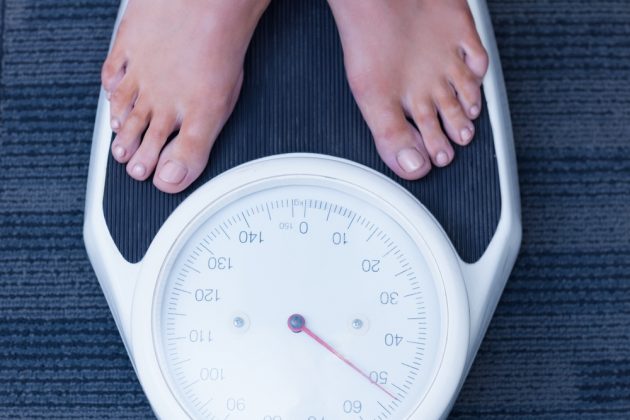Very many people suffer from problems with being overweight. These people in the hope of losing weight are sitting on strict diets and exclude from the diet all fatty foods. And at the same time – I’m willing to argue – they never thought about the fact that eating too few fats can become another problem.
The fact is that fats have a bad reputation, and therefore many seek to completely eliminate them from their diet. Others simply use “wrong” kinds of fats, which causes health problems: heart disease, diabetes, high cholesterol.
But if “bad” fats (saturated or trans fats) adversely affect your health, monounsaturated and polyunsaturated fats, on the contrary, are useful if you know the measure, of course.
You can not discount the essential fatty acids (NLC), such as omega-3, which largely help our body, from reducing inflammation and ending with the prevention of dementia.
So, the main question: by what signs can you determine if there is enough fat in your diet? Examine the list below: if there are coincidences, it’s time for you to revise your menu.
1. You have dry skin

If you suffer from dry, itchy or scaly skin, try to eat more olive oil, nuts and avocado. They will provide your body with fatty acids, which are needed for sebaceous glands, natural moisturizers of the skin.
NLC (omega-3 and omega-6), which enter the body with food, support the health of cell membranes and ensure the production of lipids. Lipids do not allow water to evaporate through the skin, keeping it moisturized. Therefore, it is so important to obtain a sufficient amount of NLC.
In 2008, an experiment was conducted to find out how the evening primrose oil (a source of omega-6) affects people with atopic dermatitis. After five months, a marked decrease in skin dryness was noted in 96% of the subjects receiving oil.
2. You are often angry and depressed
Interestingly, omega-3 and other fatty acids help counteract the development of depression. If your mood has plummeted, try to eat fat fish or flax seeds – it will not take much time and you will feel the difference.
Norwegian scientists conducted a study in which about 22 thousand people took part. As a result, it was found that the probability of depression in people who regularly eat fish oil (rich in omega-3) is less by 30%.
This is not the only study that confirms the positive effect of fats on a person’s mental health. There are others who argue that the lack of omega-3 in the body has a negative effect on the psyche. So, scientists found out that an increase in the proportion of omega-3 in a diet affects a patient with depression better than taking antidepressants.
But the lack of useful fatty acids often leads to excessive impulsiveness, aggressiveness, cynicism and anger.
3. You quickly get tired

If you burn out before three o’clock in the afternoon or you are difficult to get up from bed in the morning, perhaps, your body has a low level of energy. Fuel for the body is proteins, fats and carbohydrates. At the same time, fats are the main source of energy.
Useful fats slow the absorption of carbohydrates, which enter the body with food. This minimizes blood sugar jumps when we eat foods rich in fast carbohydrates (white bread, pasta).
A sharp jump in sugar is accompanied by a surge of strength. But when the sugar level begins to fall (and this happens very soon), the feeling of vivacity is replaced by a state of fatigue, lethargy and drowsiness.
Try to add a tablespoon of coconut oil to the coffee, and you will see how this will add to your energy and vivacity.
4. You are constantly hungry
If you feel a rumbling in your stomach, when not even an hour after your last meal, it is a sign that your body may lack fat.
Studies prove the fact that taking even a small amount of dietary fats can satisfy hunger and moderate appetite. These same studies have shown that certain types of fats saturate better.
Food rich in polyunsaturated fats (fatty fish, walnuts) and saturated fatty acids (butter and melted butter, lard) are more nutritious than food that contains monounsaturated fats (avocado, olive oil, peanut butter).
Nevertheless, in order to avoid health problems, it is not recommended to receive more than 7% of daily calories from saturated fats.
You can add the slices of avocado into sandwiches and pour olive oil over the salads. In most cases this will be enough.
5. You are always cold

Have you heard how skinny people complain that they are cold? Or, how do people with obesity suffer when the summer comes? This is due to the fact that dietary fats are involved in regulating the body’s basic temperature. Subcutaneous fat is needed by a person to keep heat in the body.
Moreover, subcutaneous fat protects the body from a sharp drop in temperature. In such cases, fat deposits produce heat, which increases the temperature of the entire body.
Of course, there is a big difference between harmful fat in the abdominal area and a thin layer of subcutaneous fat, which is beneficial for the body.
6. You often can not collect your thoughts
A large concentration of omega-3 is inherent in the brain, so these fatty acids are considered critical for all higher mental functions (memory, thinking, speech).
In other words, if you often forget about meetings, activities and birthdays of a loved one, you may need to reconsider your diet. And the sooner you start to take care of the availability of healthy fats in your diet, the sooner you will get results.
By the way, NLC help combat attention deficit hyperactivity in preschool children.
7. You can not lose weight

This paragraph may sound illogical, but I will now explain.
If you remove all fats from the diet, then the body will have to compensate for their lack of other nutrients: carbohydrates and proteins.
It’s not a secret that in order to drive extra pounds, you need to eat less carbohydrates. So it turns out that by increasing the proportion of dietary fats in the diet, you reduce the body’s need for carbohydrates. Without carbohydrates, which are fuel, the body will have to get energy by burning fat stores.
Count, one gram of fat emits nine calories, and carbohydrates and proteins – four. This means that a handful of walnuts will charge you with more energy than a couple of biscuits with sugar.
8. You have vision problems
Eye problems can be another sign that the body lacks fatty acids. Omega-3 acids protect the eyes from age-related macular degeneration, overpressure and glaucoma.
Macular degeneration is the most common cause of vision loss. The study, which lasted 12 years, revealed that people who consume omega-3 in sufficient quantities are 30% less likely to develop macular degeneration.
But a diet with a high content of harmful trans fats, on the contrary, promotes the development of macular degeneration. Therefore, if you have eye problems, refuse frequent eating of fried chicken, crackers and sweets.
It is also proved that NLC help in the treatment of glaucoma, another common cause of vision loss.
9. Your joints hurt

If you are an athlete and suffer from arthritis, or if your joints are hurting, you should pay careful attention to ensuring that your diet includes enough fat.
Using only “useful” fats and avoiding “bad” fats, you reduce the risk of inflammation in the whole body. This can help you in the fight against arthritis.
Which foods contain “good” fats? In olive oil, salmon, herring, sardine, walnuts.
In addition, omega-3 acids reduce the “stiffness” of the joints in the morning and improve blood circulation during exercise.
Of course, fats are a very high-calorie food, so know the measure.
10. You have high cholesterol
It is known that a high level of “bad” cholesterol (LDL, low-density lipoproteins) increases the risk of heart disease. But did you know that it’s not enough to just reduce the level of “bad” cholesterol? It is also necessary to work on increasing the level of “good” cholesterol – HDL, high-density lipoproteins.
If the level of “good” cholesterol in your body is below normal, try eating more healthy fats. “Good” fats for “good” cholesterol. It’s not too hard to remember, is it?
As scientists say, the use of fatty fish (salmon, sardines, herring and mackerel) several times a week will dramatically increase the level of “good” cholesterol. If you do not like or can not eat as many fish, drink fish oil. He will do the same job, but it will take more time.
11. You quickly get tired in crowded places

If you become irritable and quickly tired at stadiums, bars or other places where many people, the cause may be a so-called sensory overload. Try adding more omega-3 to your diet, and you’ll see how things change.
In 2009, scientists found that omega-3 fats help animals avoid sensory overload. The mice were exposed to increasing noise. Rodents who received enough omega-3 remained calm, while the rest were shocked by loud noise.
Science tells us that reducing the concentration of omega-3 in the brain leads to a deterioration in mental abilities. If you work with your head, I recommend that you monitor the presence of fats in your daily diet.
12. Do you have beriberi?
Perhaps, every person has periods when it seems that the battery is in the village (apathy, do not want to do anything, drowsiness). This is often associated with a lack of vitamins. But the real problem can be that the body does not absorb (does not suck) these vitamins.
Do you lack vitamins A, D, E and K? In fact, you may simply lack a small amount of dietary fats: without them, the listed vitamins are not digested.
The use of natural coconut oil is a great way to be sure that you get maximum benefit from the vitamins that you take. And yes, coconut oil is saturated fat. But this is the only product that is an exception to the rules.
Coconut oil improves the absorption of antioxidants and other nutrients and copes with this task much better than other fats.
Conclusion
Observe the balance is a prerequisite for the use of dietary fats. Make sure that your diet contains enough monounsaturated and polyunsaturated fats, especially omega-3, as well as a small amount of saturated fat. Your body needs it.
